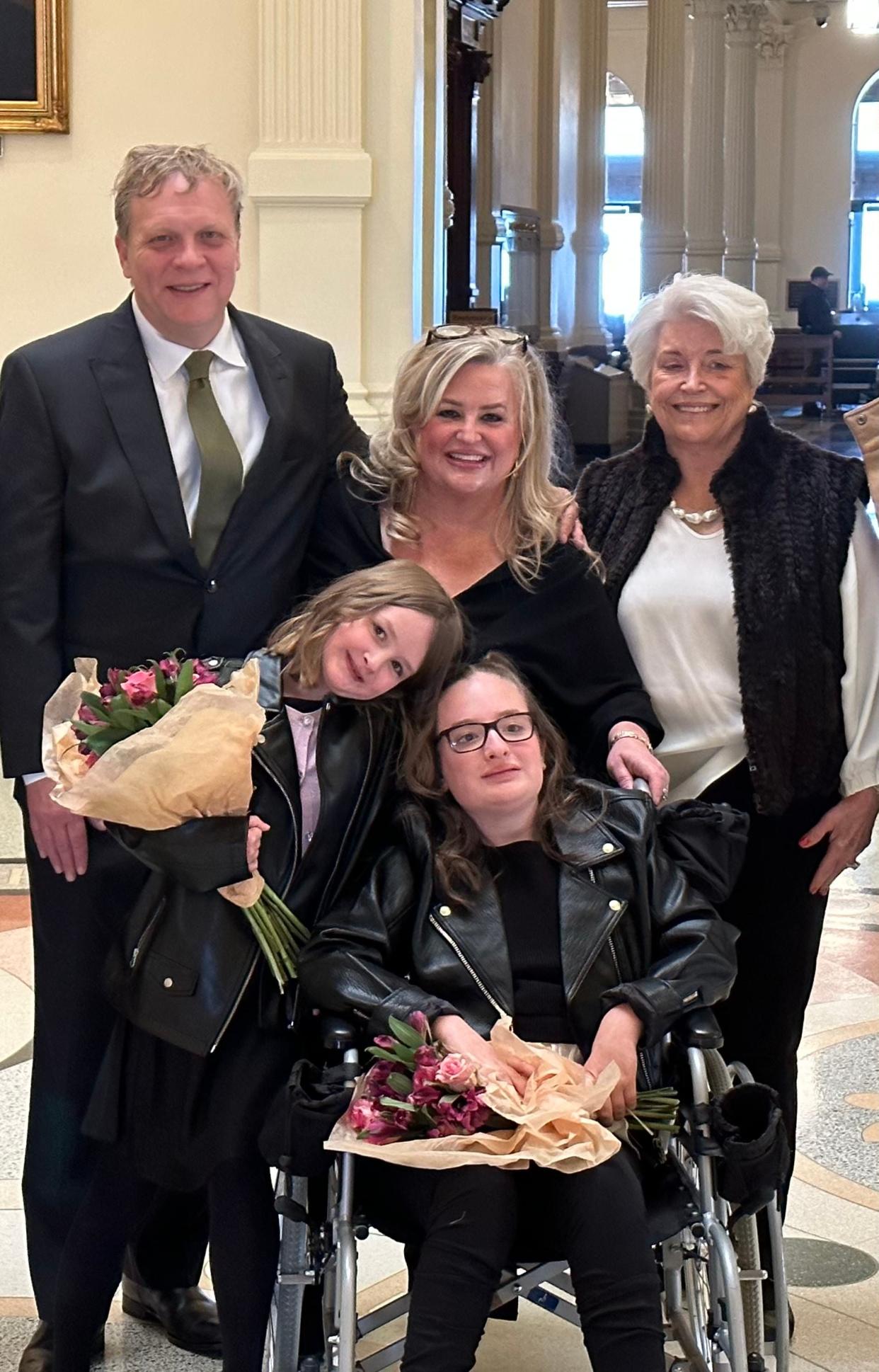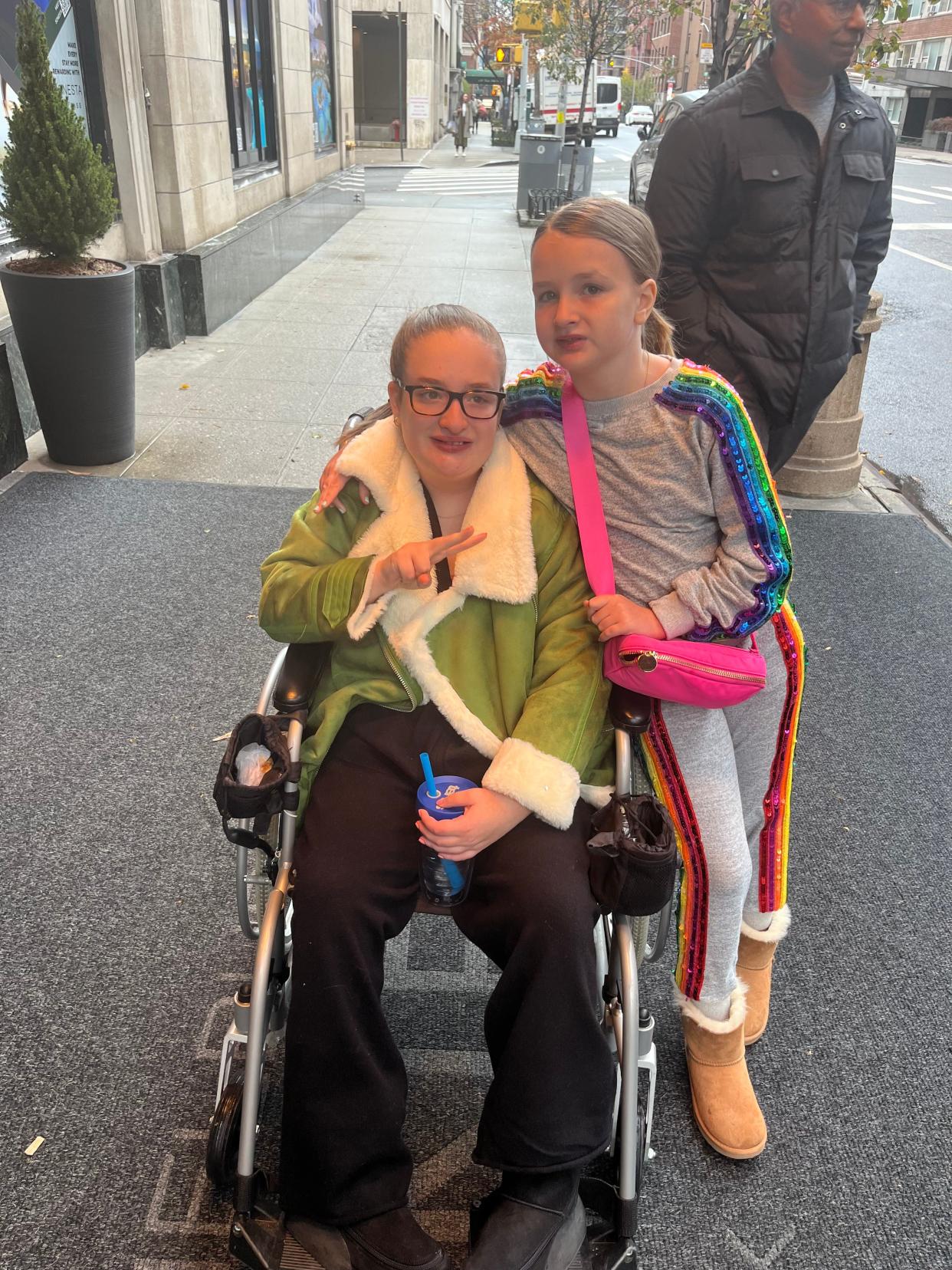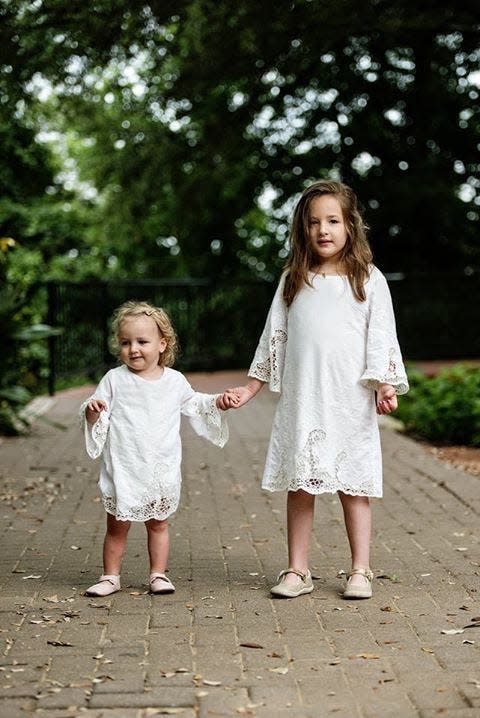A $5 million gift from Firefly Fund launches rare disease center at Dell Medical School
Dell Medical School at the University of Texas is starting a center for rare diseases with a $5 million gift of seed money from Firefly Fund, a nonprofit founded by Austin parents Pam and Chris Andrews after their daughters were diagnosed with a rare genetic disease in 2016.
"This is really a true opportunity and a generous gift to launch the center at the University of Texas," said Dr. Claudia Lucchinetti, Dell Medical School's dean, who has a background in neurological diseases.
Lucchinetti promised to "never lose sight" of the Andrews daughters, Belle and Abby. Every day parents and families like the Andrewses learn about and cope with rare diseases, she said. "We will not lose sight of that."

The center, unnamed as of yet, will be led by Stephen Ekker, a genome engineer, associate dean of innovation and entrepreneurship at Dell Medical School, and associate vice president for research translation at UT; as well as Dr. Leah Harris, the chair of the department of pediatrics and director of the Dell Pediatric Research Institute at Dell Medical School.
"We know that precision medicine is the key in the future," Ekker said.
From spark of an idea to a rare disease center
The medical school is still in the planning stages of how this center will work and must raise the $250 million it will take to run the center, Harris said. She came to Austin in 2020 wanting to ramp up Dell Medical School's involvement in rare disease.
"The Austin community has the need. We have to build community to do the work together," she said. "It's not going to happen overnight."
Austin's technology, medical and pharmaceutical innovation as well as the university make the city poised for this center, Harris said.
"This is doable," she said. "Now is the time."

Some of the research work is being done already in the Dell Pediatric Research Institute, where tanks of zebra fish are being used to test disease processes.
It is not clear how Dell Children's Medical Center and its parent company, Ascension Texas, will be involved in the center yet, but Michael Wiggins, the president of Dell Children's, said the hospital will have a role as the clinical partner to Dell Medical School.
"We have a wonderful relationship," he said. "At this point, we don't have enough information."
The Andrews family and families like theirs also will be involved. In addition to giving the money, the Andrewses "care deeply and are involved in the day to day," Ekker said. "This is a transformative, completely different approach to health partnership."
One family's story spurs change
In 2016, the Andrewses went on what they call an "odyssey" to their daughter Belle's diagnosis of Niemann-Pick type C1. It finally happened just before Belle's sixth birthday, after three years of trying to find out why she fell all the time. Once Belle was diagnosed, they were able to get Abby, who was 18 months old, diagnosed as well. At the time, they were told the girls probably wouldn't live past 12 years old, Pam Crowley Andrews said.
"When we were diagnosed, we were given a Make-a-Wish form and told to take the girls to Disney World," she said.
The disease has had little effect on Abby, now almost 10, because of early diagnosis and access to a treatment being researched, her parents said. Belle, now almost 14, lost her ability to walk while receiving a placebo during a clinical study. After being put on the actual medication, Belle was able to keep her ability to talk and to swallow.

Their story is an example of why Austin needs a rare disease center for diagnoses and research and to connect families to resources including clinical trials and experts, the Andrews parents said. Without the center, parents might go to 12 different doctors trying to get a diagnosis, said Pam Crowley Andrews.
The center will be "one spot to go for an umbrella of care for everyone," Chris Andrews said. That includes adults with rare diseases as well.
"Texas needs it; Austin needs it," he Andrews said.
Read more: Austin musician Casey McPherson opens Everlum Bio lab to treat, find cure for daughter Rose
This article originally appeared on Austin American-Statesman: Firefly Fund gift launches rare disease center at Dell Medical School
